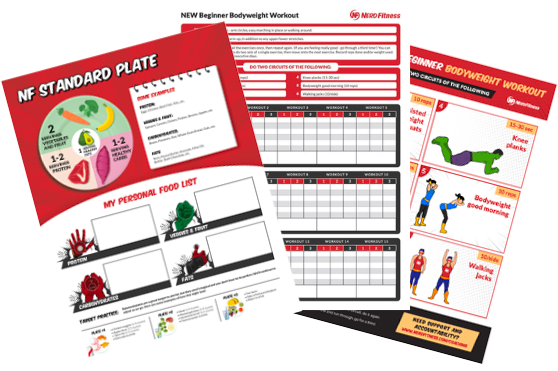“During any life-changing event, there comes a moment when the fog of the crisis temporarily clears, and you realize with certainty that things will never be the same again…”
I’ve been thinking a lot about acceptance lately, spurred on by a recent conversation that put quite a few things in perspective.
Last week, I caught up with my friend Jodi Ettenberg.
Jodi and I crossed paths as fellow traveling bloggers back in 2011, me with Nerd Fitness and her at Legal Nomads. Jodi is a former lawyer turned travel blogger, helping people understand different cultures through food.
We even once co-presented at a conference about community building!
To say Jodi’s life has changed dramatically in the past few years is an understatement.
In her words:
“In 2017, a routine lumbar puncture changed my life and derailed the travel and food business I worked hard to build.
Immediately following the procedure, I could barely walk. My legs were jelly, while at the same time it felt like someone had poured concrete into my lower spine.
Within days, I could not stand up. My brain felt like it was sagging in my head, as if it were an anvil pushing down into my neck. When in bed, the room spun. I felt too nauseous to eat, and had trouble finding words. My back burned uncontrollably from top to bottom.”
It turns out…that procedure created a continuous spinal cerebrospinal fluid (CSF) leak that persists to this day. Instead of traveling the world and working on her business, she’s mostly bedridden in her small apartment and has had to adapt to a very different existence.
You can read her full story on CNN, but it’s what Jodi has done since her diagnosis that has blown me away.
Identity Theft
If you’re familiar with “identity-based habit change,” it can be an amazing way to create a better version of ourselves. We decide who we want to become, build a new identity around that, and then simply act as if we were already that person.
But what happens when that identity is taken from us?
I was asking Jodi about how she was able to move forward, and not spend every day raging at the universe. I do plenty of this, and I’m able-bodied; Jodi has a chronic condition that keeps her bedridden for most of the day, with a condition that is unlikely to change for the foreseeable future.
She struggled to process this awful hand she was dealt, and shared something profound:
“Well-meaning people sent me Instagram posts about how positive thinking would help my healing. I read books about happiness, and about how daily affirmations could make me feel better. Yet every word I consumed made me feel more alone.
Toxic positivity promises that gratitude is all you need. Losing my mobility taught me otherwise. Feeling general appreciation or gratitude does not fix everything when life unspools. Worse, when illness is involved, the insistence on gratitude can be alienating, and even cause harm. Patients feel castigated for not being “grateful enough.”
Gratitude is an effective tool, one among many, when nurtured as a skill. It is not a panacea for pain. And when we jump straight to gratitude without first sitting in the mess of our present, we skip a very important step.
I learned that what I needed initially was to process my anger and my loss.”
So, she had to learn to sit with the pain and actually process the trauma. She needed to mourn her old life so that she could move forward.
While in a 10-day vipassana yoga virtual seminar, she learned about acceptance and hatred:
“I learned that when you generate hatred or animosity, you’re the first victim. I have such a limited amount of bandwidth each day, I realized how much of that I was using up on anger. I needed to use that bandwidth for the things that actually mattered. I had to move toward acceptance.”
I am in awe of Jodi and what she’s gone through and how she’s managed to rebuild her life around her new reality.
As we talked, I was reminded of the amazingly beautiful and sad Not Fade Away, an autobiography by entrepreneur Peter Barton about processing his terminal cancer diagnosis:
“My disease and I were not opponents, we were more like unwilling roommates forced to live in the same tight quarters of my body.
In the course of doing that, I realized something useful: that acceptance doesn’t mean the same thing as giving up.
Giving up is when you’re in a contest and you acknowledge that you’ve lost. Acceptance is when you graduate to a different way of looking at the situation. You make peace with the obvious fact that the outcome is no reflection on your character; you no longer see it in terms of winning or losing. Somehow you leave those opposites behind. It’s a big relief.”
And finally, my conversation with Jodi reminded me of Mo Gawdat’s story of “committed acceptance.” Mo’s son Ali died during a routine operation on his appendix due to a catastrophic series of preventable medical errors.
This quote is never far from my mind:
“Acceptance” means understanding that this is your new baseline.
I will never receive another hug from my son. I will not hear his voice on the phone or see him play music ever again.
That’s my new baseline.
I will stop pretending otherwise. “Committed” means I can still improve my own life and the lives of those around me. You don’t have to know how you’ll do it.
You tell yourself, “Now that I’ve accepted this tragedy, I’ve accepted this pain, I’m going to crawl out of it.”
Acceptance isn’t giving up. It’s the path forward.
You might not have a terminal diagnosis, life-changing medical condition, nor lost a child due to medical malfeasance, but I bet you can all relate to what it feels like when part of your identity is stolen.
It could be a medical diagnosis, a relationship ending, losing a job, our kids going off to college, or anything in between.
No matter the situation, it’s important for us to take the time to grieve our past selves and build acceptance of our new baseline.
I know the urge is to “think positive!” our way through this stuff, but we can’t “just look on the bright side.”
We can’t – and shouldn’t – minimize our pain by saying “It could have been worse.”
Instead, we can start by accepting this sucks.
Because it does.
Only then can we cultivate acceptance.
We can no longer compare ourselves to the version of us in the “before times,” because that person doesn’t exist. We can only transform into something new.
This is “Day 1.”
As Mo Gawdat said, we can then crawl towards our new reality:
The word is “crawl” because that’s how it feels.
Today I’ll do one thing that makes my life better than yesterday, and tomorrow I’ll do one thing that makes my life better than today.
That’s it.
I hope this newsletter can help you get through this week, thanks for reading.
-Steve
PS: Jodi now writes a really fun newsletter (along with updates on her condition) over at “Curious About Everything,” which is worth signing up for!


